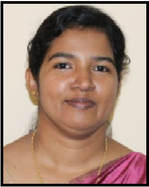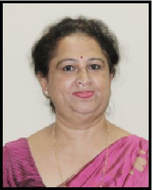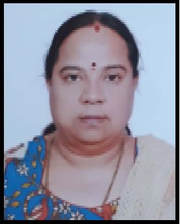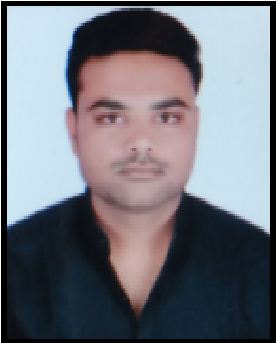|
Yallappa Kombinoor Abstract
The paper is based on the secondary sources on the issues of ethical values, curriculum, education and violation against women in India. It argues that ethical values are the core aspect to prevent and mitigate the issues of atrocities and violation against women in a patriarchic society like India. It also offers suggestion to skirminish violation against women. One of the measures is to imbibe ethical values to the younger generation by updating such issues in the curriculum. Key Words: Ethics, Curriculum, Violation, Gender Equality Abstract
The present paper analyses the health status of the rural women in India. Ageing is a global phenomenon. In India, majority of 75 percent of elderly persons reside in rural areas out of which about 48.2 percent comprise women. Today these elderly women face miserable conditions in their life; women are an especially vulnerable group. An overwhelming portion of this group are widows who, in India, suffer multiple miseries—being women, being widows, being poor, living longer, more ago lives than men. The ageing of the 80+, with numerous morbidities, needs more attention. This section of people suffers more on account of disability, chronic disease, terminal illness, dementia and depression, accidents, falls, nutritional deficiencies, loneliness, etc. Furthermore, they are subjected to elderly abuse, sharpened by neglect and isolation, which makes them financially and emotionally dependent on their families and others. Changing Family Context and Adolescent Wellbeing: Relevance of FamilySocial Work Interventions12/23/2018 Abstract
Adolescence is a transition period where adolescent children become increasingly independent from their families but the existing literature reiterates that family is central to the healthy development and transition of adolescents. But, adolescents as well as the families today, are in a fast paced changing society which significantly influences both. The changes in the society not only pose a threat to family as a primary social environment for human development but also present demands on it to function better. In this article, the authors take a closer look at the demands and challenges of the family context today and analyses the effect of a social work family intervention for strengthening family as a critical context for healthy adolescent development. Keywords: Family context, adolescent well being, family strengths, family intervention. Abstract
The child labour is the phenomenon which is observed to be widely prevalent in most of the developing economies of the world including India. The children in the economically poor and socially deprived families are sent to work in their early child hood to supplement the family income as the families do not have enough resources to send them to schools and make them honour their childhood. Though India is signatory of various international conventions and agreements like ILO, UNICEF child labour in India still persists and it is not completely eradicated. In the Indian context the past two decades are considered as “Complete intellectual triumph of the trinity of liberalisation, privatisation and globalisation.” According to the data released by the Planning Commission on 22 July, 2013, poverty in India has declined from 37.2 percent in 2004-05 to 21.9 percent by 2011-12. Digital Literacy among Rural Youths at Jarauthi Village, Aligarh: Status and Intervention12/23/2018 Abstract:
This study focuses on the accessibility and usability of digital infrastructure and knowledge of using various online services. This study is conducted to understand and explore the status of digital literacy among youths at Jarauthi Village, Aligarh. The study uses both primary and secondary data, to understand the vision and perspectives at the policy level and to analyze the ground realities at the village level. The total sample of the present study is 60 educated youth (32 Male and 28 Female) and data has been collected through purposive sampling. The paper also discusses certain measures for the successful implementation of National Digital Literacy Mission in light of the findings of the study. Keywords: Digital Literacy, Information Communication Technology, Good Governance, Digitalisation Gangadhar B. Sonar Abstract
The paper is an attempt to see whether the variables family and gender have anything to do with manifestation of life stress among the professional postgraduate students. It explores the manifestation of stress in the areas of personal, familial, economic, academic and social. The level of stress has been measured using a seven point Likert scale measuring life stress from no stress to the stress of unbearable extent. It is found that students have life stress of various levels. Personal, family, social, economic and academic aspects have a bearing on developing life stress. The variables family and gender have significant difference with select variables in developing life stress. It is suggested that the student mentoring system and stress prevention, intervention need to be introduced in order to help students to cope up successfully. Key Words: Life Stress, Family, Gender, Professional Postgraduate students. Positive Youth Development among Rural Youth: A Study of Bandar Sindri Village of Central Rajasthan12/22/2018 Suman Rana Abstract
The emerging discipline of Positive Youth Development (PYD) asserts that though issues exist among youths, they can realize their life aspiration and nurture their assets through appropriate guidance and therefore become key contributors to the society. This approach further proposes that when necessary resources or skill building programmes are provided to the younger generation to enhance their inbuilt ability such as competence, confidence, connection and caring members of the community with good character, than they can become agents of social transformation and social contributors towards their family, community, and society. Women Empowerment and Sustainable Livelihood Through Micro- Enterprises Development in Kerala12/21/2018 Sulfikar C Abstract
Limited savings and lack of access to credit life make difficult for many poor people, particularly women in low-income countries, to become self-employed and to undertake productive employment and income-generating ventures (Khandker, 1998). Kudumbashree was launched by the Government of Kerala in 1998 to wipe out the absolute poverty from the state through community actions under the leadership of local self-governments. At present, the programme has covered 39.97 lakh members and its benefits get more than 50% of the households of Kerala, based on three critical components like micro credit, entrepreneurship and empowerment (Kudumbashree Annual Report, 2015). The Sustainable Livelihood (SL) is recognizing the diverse dimensions of poverty and strengthen the poor people for adopt to secure their development (UNDP, 2009). The micro-enterprises for women are a commonly used strategy for women empowerment (Ganle, J. K., Afriyie, K., & Segbefia, A. Y., 2015) and livelihood promotion. This article documents the provisions for women empowerment and sustainable livelihood through micro-enterprises developments of Kudumbashree project in Kerala. Key words: Women empowerment, Micro-enterprises development, Sustainable livelihood, Kudumbashree in Kerala Introduction
Health is an important aspect of human Resource development. Good health care facilities and essential for creating healthy citizen and society that can effectively contribute to social and economic development. With increased urbanization, industrialization, are contribution of health resistance and the changing nature of health problems has become a great concern for world today. Therefore three of eight millennium development goes 1) Emphasize on health , they are to reduce child mortality 2) To improve mental combat 3) To reduce HIV/AIDS, Malaria and other diseases. Ahfaz Khan Abstract
School is important for cognitive, creative and social development of children. So are the School Sanitation and Hygiene Education, necessary for the safe, secure and healthy environment for children to learn better and face the challenges of future life. Sanitation is one of the basic determinants of quality of life and human development index. Good sanitary practices go a long way in helping to prevent diseases. Hand washing and oral hygiene are the basic steps to maintaining good health. The present study is a school based survey undertaken among children in a state government Primary school in three villages of Sagar district with the objectives of finding out the prevalent status of personal hygiene in the study population and school’s role in promoting these practices among the students. The total sample was 100 students. The study was conducted using interview schedule and questionnaire from school authorities and parents of students and informal interaction with the school students. Most of the junior children carried their own water bottles to the school, while this practice decreased as they grew older and senior. Almost all the children adhered to the good habit of washing their hands after using the toilet, always, or at least most of the times, but the practice of using soap was variable. The present study revealed a generally good standard of hygiene amongst the study population. However, steps are required to be taken to improve the status of personal hygiene of all the school children, who are found lacking in this aspect, through various coordinated primordial as well as primary preventive measures like imparting health education. Keywords: Hand washing, Sanitation, School children, Toilet, Urban, Water |
Categories
All
Social Work Learning Academy50,000 HR PROFESSIONALS ARE CONNECTED THROUGH OUR NIRATHANKA HR GROUPS.
YOU CAN ALSO JOIN AND PARTICIPATE IN OUR GROUP DISCUSSIONS. MHR LEARNING ACADEMYGet it on Google Play store
|
SITE MAP
SiteTRAININGJOB |
HR SERVICESOTHER SERVICESnIRATHANKA CITIZENS CONNECT |
NIRATHANKAPOSHOUR OTHER WEBSITESSubscribe |
MHR LEARNING ACADEMY
50,000 HR AND SOCIAL WORK PROFESSIONALS ARE CONNECTED THROUGH OUR NIRATHANKA HR GROUPS.
YOU CAN ALSO JOIN AND PARTICIPATE IN OUR GROUP DISCUSSIONS.
YOU CAN ALSO JOIN AND PARTICIPATE IN OUR GROUP DISCUSSIONS.
|
|





















 RSS Feed
RSS Feed





